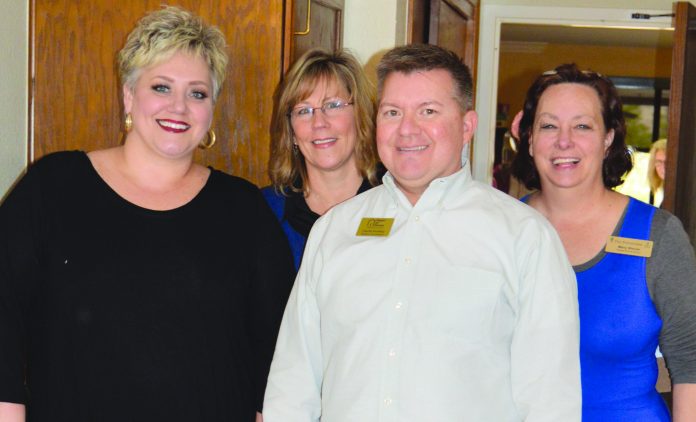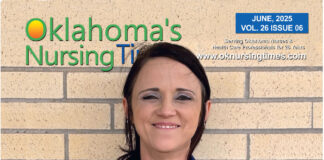
by James Coburn
Staff Writer
Imagine your life being a puzzle tossed into the air, fragmented into pieces that cannot be joined together again. Every day brings a little death for someone living with Alzheimer’s disease. It can be treated, but for this terminal illness, there is no cure.
For the caregiver or anyone who shares experiences with a person living with dementia, there is a program offered called Alzheimer’s Experience which promotes empathy for the loved one by educating people about how Alzheimer’s changes the course of life.
Most recently the event was held at the Fountains at Canterbury in Oklahoma City and is offered at other locations, said Charlie Redding, director of business development for Right at Home which offers in home care and assistance, and Jennifer Forrester, community relations director of Oklahoma Hospice Care.
They have also partnered with Rivermont in Norman as well as Touchmark in Edmond. Redding has also partnered with fire departments to offer refresher course training.
Forrester said the Alzheimer’s Experience is also helpful for senior law attornies or anyone with a vested interest. She is there to score the events, observe the participants in the room and take notes, Forrester said. She watches to see if tasks are being performed in order and sees how they react to noises in their ears.
“If you’d like to take a walk in the shoes of someone living with memory loss or Alzheimer’s disease, this is your chance,” Redding said.
Right at Home is hosting a dementia tour in partnership with Oklahoma Hospice Care, Redding said.
“This experience lasts about 20 minutes and we’ll provide delicious snacks for you after the tour,” he added.
The participants will take a pre-test and a post-test after the simulation, Redding said. “We’re targeting health care professionals, but it’s open to anyone, family members, caregivers, employees of the community and different vendors that we all deal with.”
The Virtual Dementia Tour consists of putting on goggles, gloves, inserts into their shoes and a headphone with a recording. The recording lasts 11 minutes during which time the participant is given five minutes to complete a task.
“They have to go into the apartment,” Redding said. “We want this to be a home-like environment as possible so that people can be more empathetic to what someone with Alzheimer’s or dementia truly is going through in their living dwellings.”
There may be things a person living with dementia may not be able to vocalize such as lower extremity nerve damage or arthritis. Maybe they cannot buckle their belts or see to turn the pages of a book to a certain page.
“A lot of times people living with dementia cannot verbalize other symptoms,” Redding said. “Things that are going on, because their brain doesn’t process it that way.”
A person with Alzheimer’s could be given a task to put their sweater on. However, they might return with a blanket wrapped around them or remain in the closet or doorstep.
“What they heard was ‘Go get that blanket and put it on.’ Or they can’t see a sweater,” he said. There is a debriefing with each participant after the event, Redding said.
“We do not want them interacting with the people who have not gone through it because we don’t want them to know what to expect,” he said.
Additionally, the debriefings might be done collectively or individually. When he brings the program to Norman Specialty Hospital at 1:30 p.m. on February 4th the direct-care employees will benefit by the impact.
“For me, I’m a part of this just to raise awareness for the devasting disease for not just the person, but the people around them,” Forrester said. “It’s scary. And I think this provides everybody an insight to what it might be like.”












